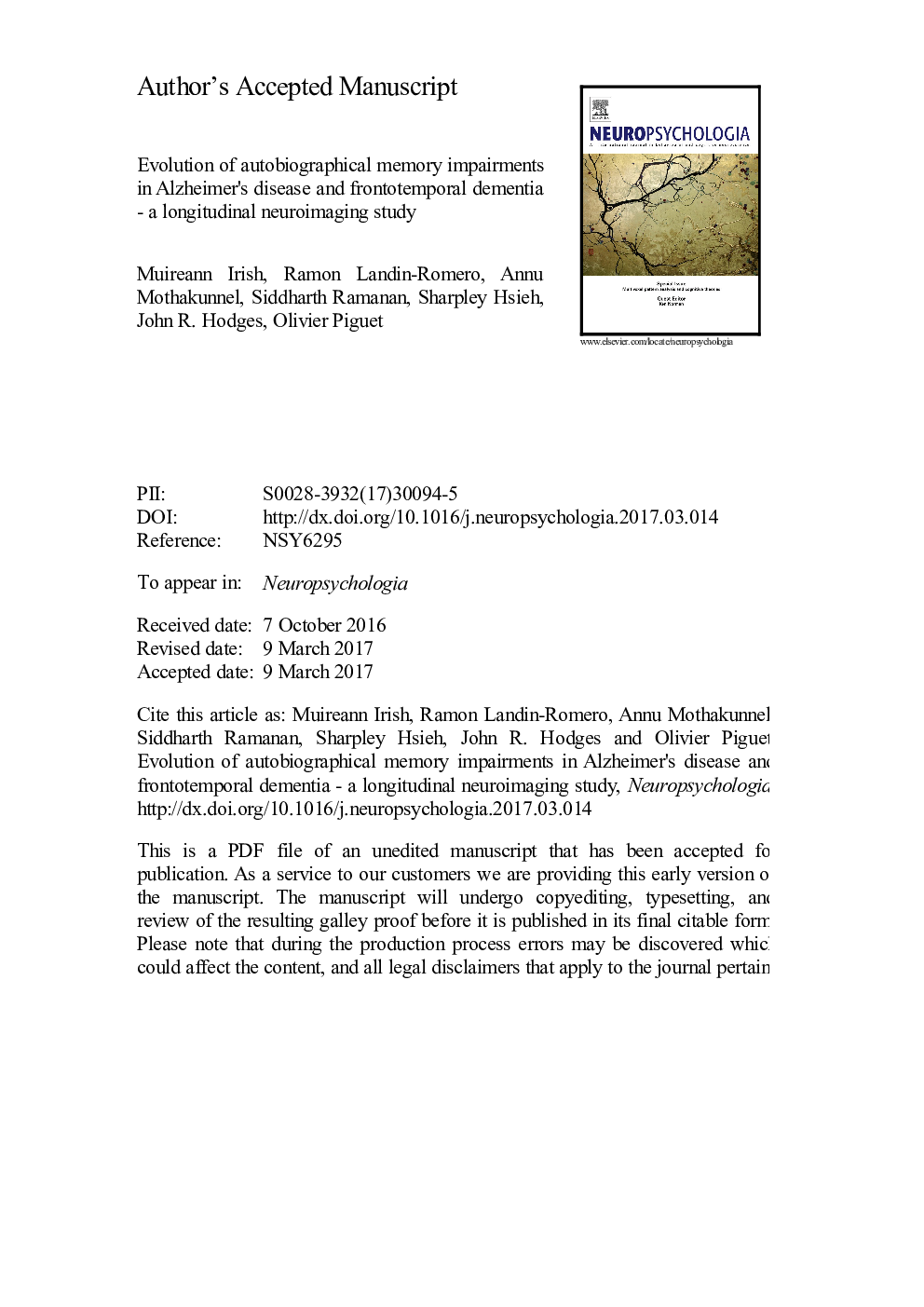| Article ID | Journal | Published Year | Pages | File Type |
|---|---|---|---|---|
| 7317874 | Neuropsychologia | 2018 | 46 Pages |
Abstract
Compromised autobiographical memory (ABM) retrieval is well established in dementia, attributable to degeneration of a core memory brain network. It remains unclear, however, how the progressive spread of atrophy with advancing disease severity impacts ABM retrieval across life epochs. To this end, we conducted a longitudinal study of recent and remote ABM in Alzheimer's disease (AD, n =11), and a frontotemporal lobar degeneration group (FTD, n =13) comprising 7 behavioral variant FTD and 6 semantic dementia patients, in comparison with 23 healthy older Controls. Patients were re-assessed approximately one year following their initial visit and underwent repeat testing and brain imaging. Linear mixed modeling neuroimaging analyses explored disease-specific cortical changes driving ABM alterations over time. AD patients showed comparable ABM profiles across assessment periods however, follow-up performance correlated strongly with lateral temporal lobe integrity. In contrast, recent ABMs were disproportionately disrupted at follow-up relative to baseline in the FTD group, attributable to cortical thinning in posterior brain regions, including the right posterior cingulate cortex. Our findings offer new insights regarding the potential time-specific role of discrete cortical regions in ABM retrieval and the differential fate of formerly evocative memories with advancing disease severity in dementia syndromes.
Keywords
Related Topics
Life Sciences
Neuroscience
Behavioral Neuroscience
Authors
Muireann Irish, Ramon Landin-Romero, Annu Mothakunnel, Siddharth Ramanan, Sharpley Hsieh, John R. Hodges, Olivier Piguet,
